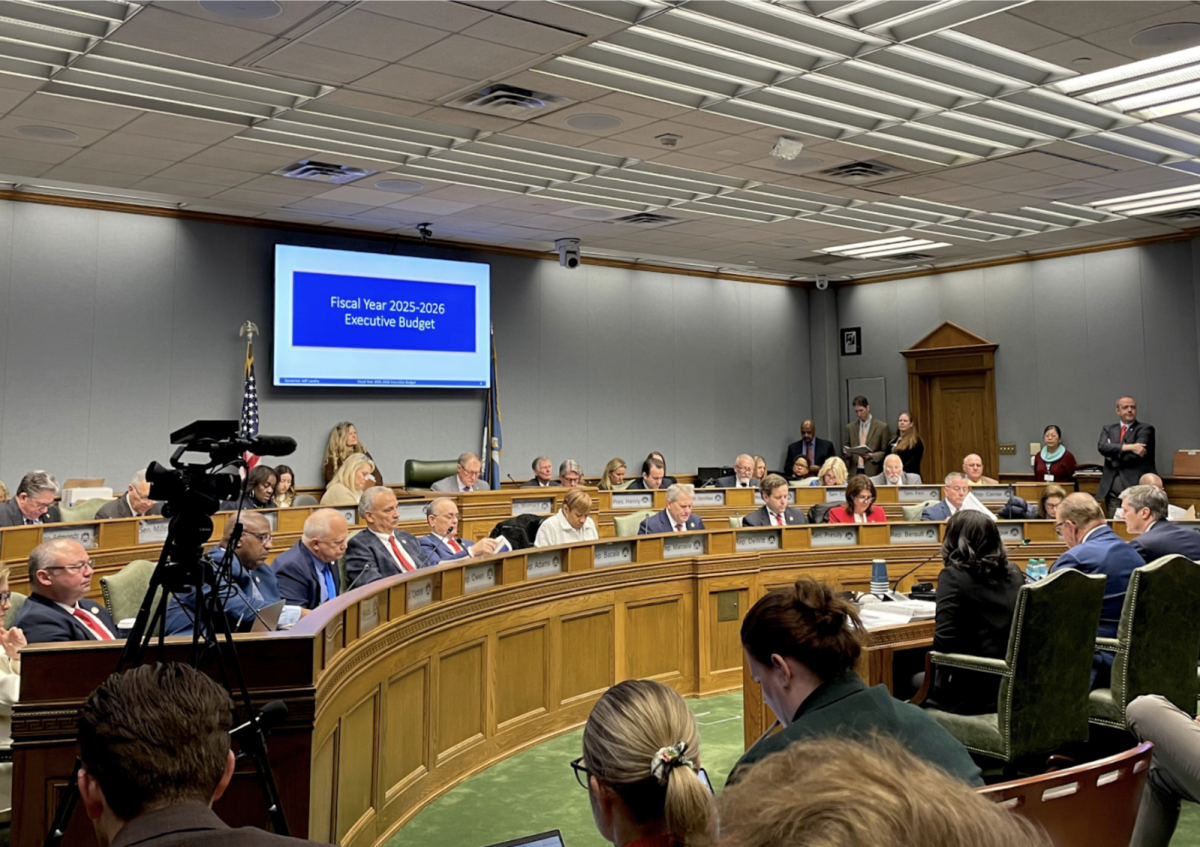While much work was completed during the Louisiana Board of Regents April meeting in the Claiborne Building on Wednesday morning, it was clear that board members’ minds were across the street at the Capitol.
The Louisiana House of Representatives and Senate had several bills affecting higher education on their agenda for the day. After a brief report by the Board’s Legislative Committee, Commissioner of Higher Education Joseph Rallo and Chairman Roy Martin left the meeting to testify before the House Education Committee alongside system heads from higher education institutions across the state.
One such bill was Senate Bill 48, a piece of legislation affecting TOPS awards. Proposed by Senator Jack Donahue, R–Mandeville, the Board of Regents recently expressed its support for the bill.
“This [bill] is to make TOPS more sustainable, and it is consistent with Board of Regents policy,” said Uma Subramanian, Board of Regents deputy commissioner for Legal and External Affairs.
While her legislative report required no action from the board, Subramanian discussed several bills searching for a dedicated source of funding for higher education.
Subramanian also brought to the Board’s attention bills affecting admissions requirements to postsecondary education.
“We have been meeting with the systems with their admissions criteria,” Subramanian said. “We hope it can be addressed through policy rather than these three bills.”
Vice Chair Richard Lipsey, acting as Chair in Martin’s absence, urged Board members to support bills protecting funds for higher education.
“This is going to be a very tough legislative session,” Lipsey said. “It is very important to us and to higher education to get many of these bills passed. We need to speak as loud as ever in this moment in support of some of these bills to make sure higher education is funded.”
In a more “fun and exciting” fiscal decision, said Regent Joseph Wiley, the Board presented 258 awards to 39 campuses from the 2014-15 Support Fund.
The Support Fund is a constitutionally dedicated source of state dollars dedicated to higher education.
Individual professors and campuses apply for money, which does not affect the state general fund.
Outside consultants review and rank the applicants before they are reviewed by the senior staff and are ultimately voted on by the Board.
“It’s one of the times we get to do something that’s actually fun is handing out awards to folks we think are deserving,” Wiley said. “It probably happens when there’s plenty of money, but in austere times as we are now, the amount of funds we can award are not in line with the merit of some of the programs.”
Wiley encouraged applicants to reapply for the 2015-2016 fiscal year to ensure all worthy programs are awarded.
The Board conditionally approved a Master of Digital Media Arts and Engineering program at the University after approving its letter of intent in May 2014. The LSU Board of Supervisors approved the proposal in December.
The 45-credit hour professional degree is self-sustaining, and students in the program will pay a $2,500 digital media fee in addition to other tuition and fees.
“The entertainment software industry workforce employs more than 120,000 people across the country with an average salary for direct employees of $90,000,” the staff recommendation states. “Louisiana continues to position itself to aggressively grow this sector with tax incentives and start-up assistance. While the State has made great strides in creating a pro-business environment, creating and growing a highly qualified workforce that is competitive at a national level is a top issue.”
Louisiana Board of Regents discuss higher education support
April 22, 2015
More to Discover









